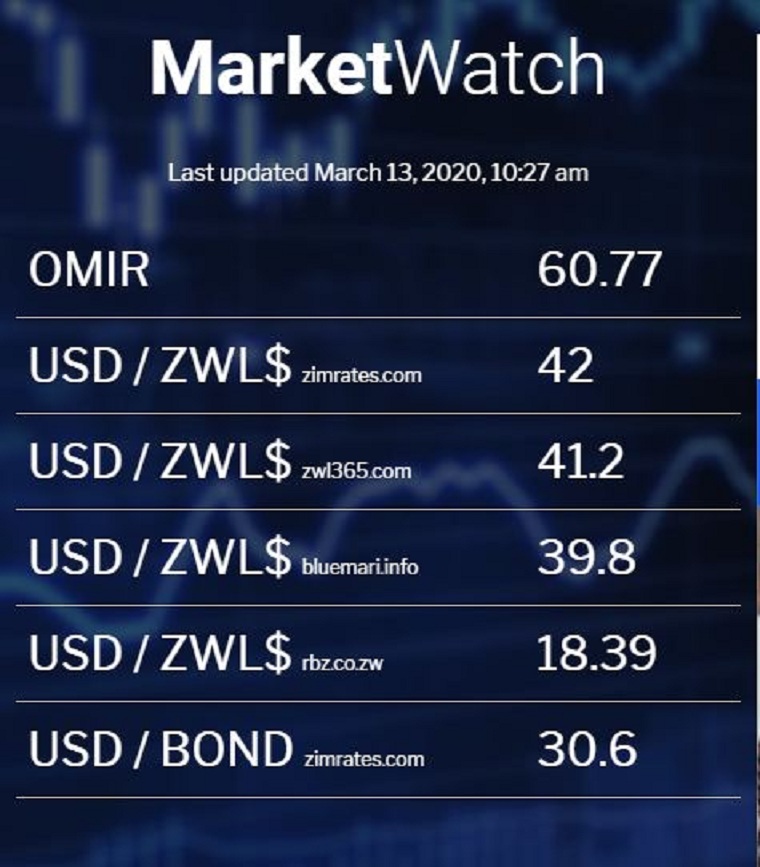 All eyes will be on the Zimbabwe interbank exchange rate today as commercial banks decide, for the first time in years, the exchange rate between the Zimbabwe dollar and other major currencies, mainly the United States dollar.
All eyes will be on the Zimbabwe interbank exchange rate today as commercial banks decide, for the first time in years, the exchange rate between the Zimbabwe dollar and other major currencies, mainly the United States dollar.
Finance Minister Mthuli Ncube announced on Wednesday that the country was introducing a “managed float” exchange rate in which commercial banks will play a pivotal role with the Reserve Bank of Zimbabwe, which controlled the rate previously, confined to a monitoring role.
The Zimbabwe dollar was trading at 2.5 to 1 against the United States dollar in February last year but is now down to 18.4 to 1 on the interbank market which traders argued was being manipulated by the central bank.
The black market rate fell to 42 to 1 immediately after Ncube’s announcement while the Old Mutual Implied Rate dropped to 61 to 1.
Though Ncube said banks would start trading on Thursday, 12 March, Eddie Cross, a member of the Monetary Policy Committee said trade would only start today.
Ncube suspended the fungibility of Old Mutual shares yesterday as the market was using the difference between the price of the share in London and that in Harare as an exchange rate.
Cross, one of the few people that was optimistic about the new measures introduced by Mthuli Ncube, said the exchange rate could appreciate to 10:1 by the end of the year.
“These measures should bring the rate down – how much is impossible to say,” Cross said. “But I think 10 to 1is possible later this year. I would be very happy if we came down to 22 to 1 next week.”
Effiel Ncube, who was very pessimistic, said the dollar would fall to 500: 1 against the South African rand. The rand is currently trading at 16: 1 against the US dollar.
Movement for Democratic Change vice-president Tendai Biti has been arguing against de-dollarisation throughout and says the country is re-dollarising on its own.
Central bank governor John Mangudya argues otherwise saying there is no going back on the Zimbabwe dollar but says de-dollarisation will take five years.
Cross feels the same.
“The talk of re-dollarisation is simply a lack of understanding, we are de-dollarising our economy but recognising this will take years, not months,” he said.
“We have to re-establish confidence in our own currency and our ability to protect and maintain its real value. So long as people think it is not a safe vehicle for savings, people will retreat to the US dollar as a store of value – just like gold in previous centuries.
“The reality is that there is much more US dollar cash in our economy than our own currency. We are trying to remedy that but it takes nearly a year to get a new currency designed and printed and put into circulation. In the meantime, the existing currency actually trades at a 30 per cent premium in local markets over the RTGS dollar.
“It is even widely traded in neighbouring States. So the State has decided to slow down the process of de-dollarisation and to allow people to use their own foreign funds on the domestic market. This will tap into the very considerable volume of hard currency that is being traded in the informal economy and assist us in meeting demand for essential imports.”
(281 VIEWS)

